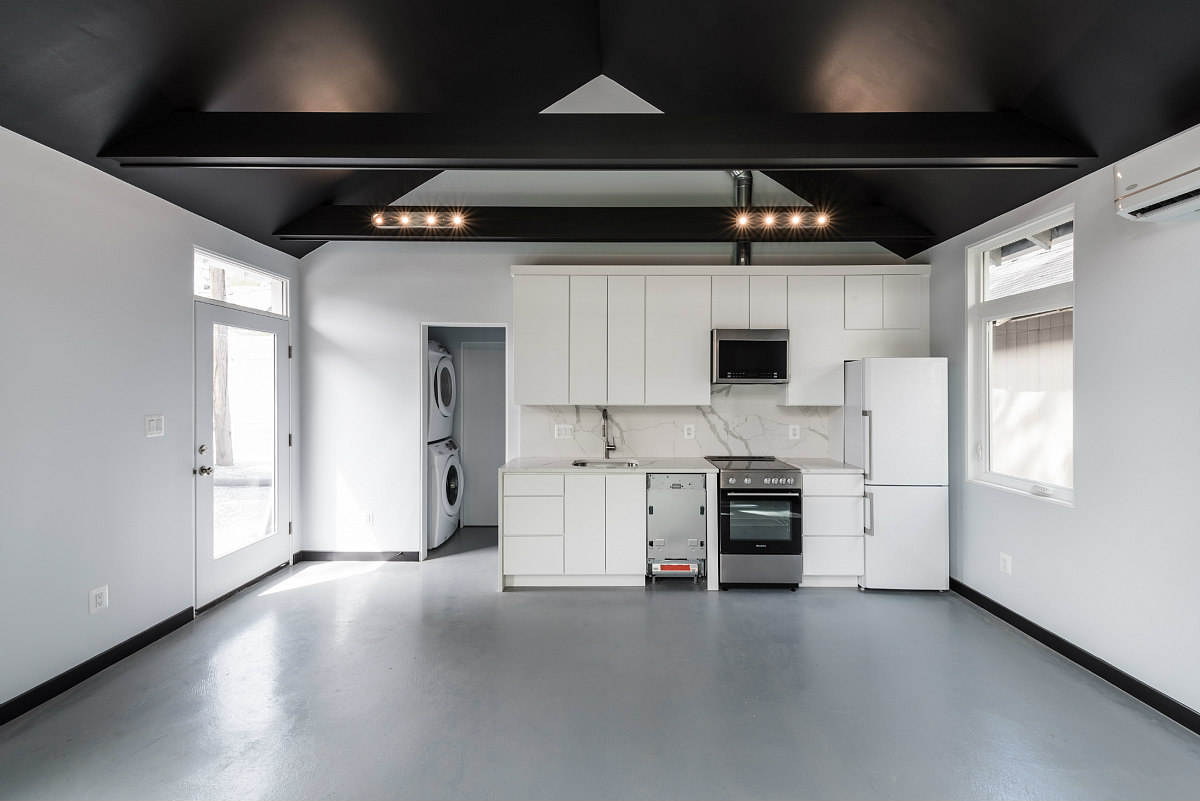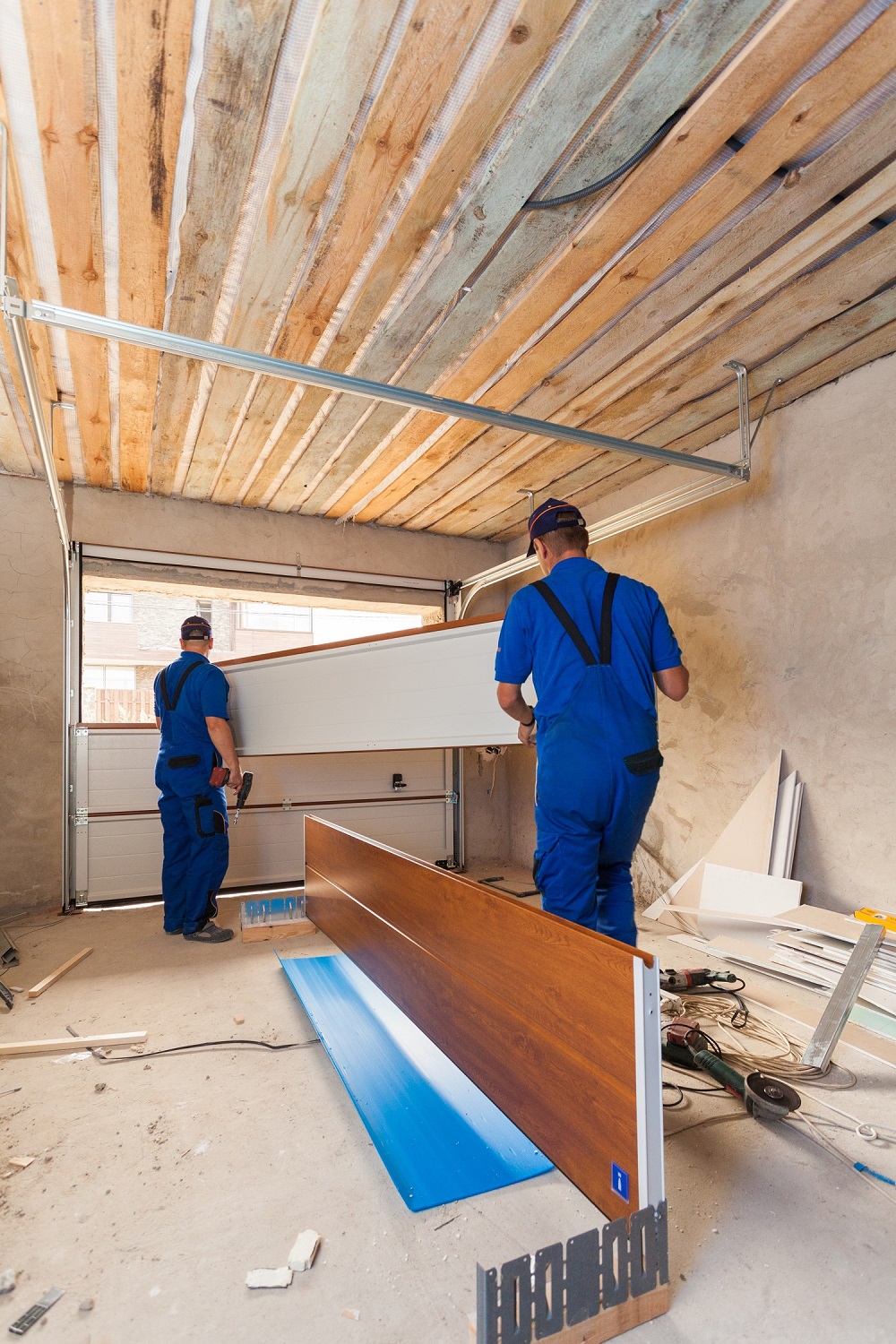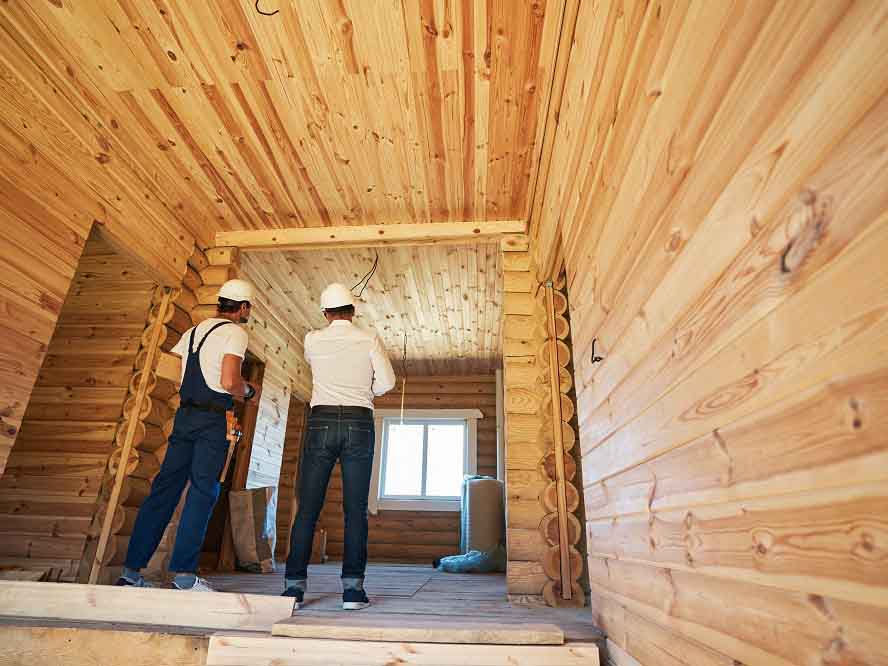
Converting an unused or underused garage into a living space—commonly known as an accessory dwelling unit or ADU—can offer a promising avenue for owners looking to maximize profits from property investments. This type of home improvement project can transform a storage area into a valuable rental property or guest house while considerably boosting your property’s overall market value.
Converting garages into ADUs has risen sharply in popularity over recent years. This can largely be attributed to the broad economic benefits of capitalizing on existing structures. Such conversions can also cater to the growing demand for affordable housing and private spaces.
But how exactly can you bank on this opportunity? How can you transform your garage into a money-making venture?” Read on as we unlock answers to these questions and discuss how a carefully planned garage-to-ADU conversion can significantly maximize your rental income.
What is a Garage-to-ADU Conversion?

A Garage-to-Accessory Dwelling Unit (ADU) conversion involves turning your garage, often underused, into a fully functional living area that can serve as a rental property. This move maximizes your property usage and creates an extra income stream, increasing your investment returns.
Legal and Zoning Considerations
Before starting, it’s important to understand your area’s zoning laws and building codes. These regulations can impact the size, design, and rental restrictions of your ADU. Ensure compliance to avoid legal issues and fines.
These rules can be around:
- Zoning regulations: Ensure the location is zoned for ADUs.
- Building codes: Encompasses health and safety requirements needed for living areas.
- Parking regulations: Most sites require off-street parking if converting to a garage.
It’s advisable to check with your local planning department to understand the applicable laws better.
Laws regarding Garage-to-ADU conversions are frequently updated and can drastically affect your investment. Being in the know helps avoid costly mistakes or potential legal issues.
Steps to Maximize Profit with a Garage to ADU Conversion
1. Budget Management
Understanding the financial aspects of a garage-to-ADU conversion is critical, as it directly affects both the affordability of the project and its potential profitability. Set a realistic budget and stick to it—account for all possible costs, including construction, permits, materials, and unforeseen expenses. Keeping costs under control is critical to maximizing profit.
Cost Estimation and Budget Planning
Before beginning a conversion project, it’s crucial to estimate potential costs. These can vary widely, depending on the size and condition of your garage and local construction prices. Costs might include construction and materials, permits, architectural designs, and unforeseen expenses.
- Construction and materials
- Permits
- Architectural designs
- Unforeseen expenses
Financing Options
Various financing options can help cover conversion costs, such as home equity loans, personal loans, or cash-out refinance. Each has its pros and cons, and it’s crucial to understand them fully before deciding.
Discussing the Potential Return on Investment (ROI)
A garage-to-ADU conversion can be a significant investment, but it can also provide a substantial return. The ROI will depend on factors such as the rental market in your area, the quality of the ADU, and how often it’s occupied. Understanding these factors will be important in determining how much profit your new ADU can generate.
2. Design and Layout Considerations
The success of your garage-to-ADU conversion largely depends on smart design choices and strategic layout considerations. Here, we discuss crucial factors to remember when planning your renovation.
Deciding on the Layout and Functional Areas of the ADU
This involves determining the purpose and functionality of each area in your ADU. You should consider:
- The size and configuration of the kitchen, living room, and bedrooms
- The plumbing and electrical needs of each area
- The potential for future modifications or expansions
Ensure the ADU feels spacious, functional, comfortable, and appealing for maximum rental appeal.
3. The Conversion Process
The conversion process for turning a garage into an ADU can be intricate and requires proper planning and execution. Consider hiring professionals and appropriately managing timelines for a successful project.
Hiring the Right Professionals
Acquiring the expertise of the appropriate professionals is crucial. This can include an architect, a contractor, and often, a project manager. These professionals help ensure:
- The design meets zoning and building codes
- Quality workmanship
- The project stays on budget and on tim
Timeline and Project Management
Garage conversions can typically take 10 weeks to 6 months or more, depending on the project’s scope. It’s essential to have a timeline in place. Proper project management ensures phases like design, permitting, and construction run smoothly and sequentially, minimizing costly delays.
4. Maximizing Profit Post-Conversion
Transforming a garage into a profitable ADU can be an incredible money-making opportunity. After the conversion, profit maximization primarily relies on keen wisdom, market insights, and perceiving the long-term benefits.
Rental Market Insights
Understanding the rental market trends in your area can help you decide the best ways to price your new ADU. Consider average rental prices, demand patterns, demographic factors, and local amenities. Each of these elements can significantly impact your rental revenue potential. With this knowledge, you can strategically calculate an honest, appealing rental rate without underselling yourself.
Long-Term Benefits
Garage-to-ADU conversions aren’t just about immediate financial gains; they also offer steady, long-term benefits such as a constant stream of rental income for years to come. This additional property can also increase your home’s overall market value. Furthermore, they can provide a comfortable living space for family members or double as a workspace or guest room.
Use Statistics and Data for Credibility
Use data to back up your decisions and give credit to your rental rates. Data from real estate reports, neighborhood comparables, and rental market stats will ensure your prices are competitive yet profitable. Also, using concrete data will offer transparency, instilling more confidence in potential tenants.
The essence of maximizing profit is balancing the correct rental rate with your personal long-term financial goals. This, coupled with some market ingenuity, can pave the path to a fruitful investment via a garage conversion.
5. Quality Finishes and Amenities
Investing in quality finishes and amenities can justify a higher rent. This could include modern appliances, high-quality flooring, or a small outdoor space.
- Higher Rent Justification: Quality finishes and amenities like modern appliances, high-quality flooring, and outdoor spaces make the unit more attractive to potential renters. This perceived increase in value allows landlords to charge higher rent, boosting their income.
- Attracting Desirable Tenants: Well-finished and amenity-rich units tend to attract more responsible and financially stable tenants. These tenants often pay a premium for a comfortable and aesthetically pleasing living space.
- Competitive Edge: Units with superior finishes and amenities stand out in competitive rental markets. This can result in shorter vacancy periods, as these units are more likely to be in demand.
- Long-Term Savings: Investing in quality means reduced maintenance and repair costs over time. High-quality materials and appliances are less likely to need frequent repairs or replacements, translating into long-term savings.
- Property Value Increase: Enhancements made through quality finishes and amenities can increase the overall value of your property. This is beneficial not just for rental income but also in terms of the property’s market value should you decide to sell in the future.
- Positive Reviews and Referrals: Satisfied tenants are likelier to leave positive reviews and refer others to your rental property. This can lead to a sustained occupancy rate and a good reputation as a landlord.
6. Legal and Tax Considerations
Understand the tax implications of renting out an ADU. Consulting with a tax professional can help you take advantage of tax deductions and understand your obligations.
Converting a garage into an Accessory Dwelling Unit (ADU) can be profitable. Still, it’s crucial to consider legal and tax implications as part of the process to maximize profit. Here’s why:
- Compliance with Local Laws and Regulations: Legal considerations are paramount. Different areas have specific zoning laws, building codes, and regulations governing ADUs. Ensuring your conversion complies with these laws is critical to avoid costly fines, legal disputes, or being forced to undo the conversion. Failure to comply can also affect the resale value of your property.
- Permitting Process: Most regions require permits for construction and renovation, including garage to ADU conversions. Navigating the permitting process legally ensures the project is officially recognized and adheres to safety and building standards. Unpermitted work can lead to problems selling the property or even legal action from local authorities.
- Property Taxes: Converting a garage to an ADU can affect property taxes. While an ADU can increase the value of your property, it may also lead to higher taxes. Understanding the tax implications helps in budgeting and assessing the project’s long-term profitability.
- Rental Laws and Tenant Rights: If you plan to rent out the ADU, you must know your area’s landlord-tenant laws. These laws cover rental agreements, eviction rules, rent control, and tenant rights. Non-compliance can lead to legal disputes and financial losses.
- Insurance Considerations: Converting a garage into a living space may change your home’s insurance requirements. It’s essential to update your policy to reflect these changes to ensure adequate coverage, which protects your investment against potential losses due to accidents or natural disasters.
- Potential Tax Deductions and Credits: Tax deductions or credits might be available for creating an ADU, mainly if it includes energy-efficient upgrades or is used for rental purposes. Maximizing these benefits can significantly enhance the profitability of the project.
- Resale Value and Marketability: Legally converted and compliant ADUs can significantly increase your property’s resale value and marketability. Buyers are more inclined to invest in properties that have legal, additional living spaces, which can offer rental income potential.
By carefully considering and adhering to legal and tax requirements, you can ensure that your garage to ADU conversion is compliant, safe, financially sound, and profitable in the long run.
By following these steps, you can maximize the profit from your garage ADU conversion while providing a desirable living space for renters.
Managing and Maintaining the ADU

Once your garage conversion to an ADU is complete, it’s crucial to understand the tasks of being a property owner and landlord.
Discussing Landlord Duties
Being a landlord is more than just about receiving rental checks. It encompasses many responsibilities, including ensuring your property meets safety standards, adhering to local rental laws, and responding to tenant needs and timely complaints.
You’re also responsible for the financial management of your property, such as setting competitive rents and handling potential repairs or improvements.
Tips for managing rental properties and dealing with tenants
Effective property management is the key to securing consistent rental income from your ADU. Building a cordial relationship with your tenants is vital. Resolve disputes amicably and quickly, incorporate a comprehensive tenant screening process, and set clear lease terms.
Regular communication can help keep tenants happy and maintain a positive renting experience.
Promoting Regular Maintenance and Inspections
To safeguard your investment, routine maintenance and inspections are essential. Issues such as plumbing, electrical, or structural problems can quickly escalate if they aren’t addressed promptly. By scheduling regular property checks, you can catch problems early and avoid expensive repairs down the line.
Remember, keeping your ADU in peak condition will fetch you higher rents and attract reliable tenants.
Conclusion

Discover the hidden potential in your garage with our guide to transforming it into an Accessory Dwelling Unit (ADU)! This smart move can unlock new space in your home and turn an underused area into a profitable asset.
Why not tap into this opportunity to boost your property’s value and earn extra income? Converting your garage into an ADU is more than just a renovation; it’s a strategic investment that pays off by providing a consistent source of income and enhancing your property’s market value.
Ready to embark on this exciting journey? Our team at Rhino Garage Conversion in San Francisco is eager to guide you through every step, ensuring you fully capitalize on your property’s profit potential. We’re excited to join you on this transformative real estate adventure. Let’s connect and turn your vision into reality!

